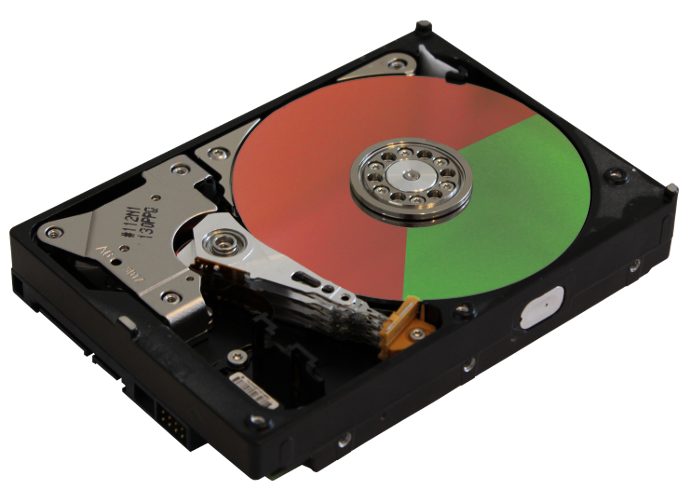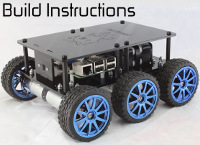DiskMon - Monitor your free space
We recommend using the new driver free based scripts for LedBorg.
The new driver free examples can be found here, the installation can be found here.
We like being able to glance at things and immediately know if they are happy without relying on manually checking.
So when our file server started running out of space we thought it would have been great to be warned.

We decided to use an LedBorg to show how full a given mount point (usually a drive or network share),
the colour displayed would be the following:
| <=11% | <=22% | <=33% | <=44% | <56% | <67% | <78% | <89% | >=89% |
The result was DiskMon.py, a Python script which reads how full a mount point is and controls an LedBorg appropriately.
Here's the code, you can download the DiskMon script file as text here
Save the text file on your pi as DiskMon.py
Make the script executable using
chmod +x DiskMon.pyand run using
sudo ./DiskMon.pyto monitor the default mount ('/', the SD card itself), or
sudo ./DiskMon.py mymountto monitor another mount (e.g. /boot)
#!/usr/bin/env python
# coding: Latin-1
# Load library functions we want
import sys
import os
import time
import re
# Parameters to the script
defaultMount = '/' # Mount path to observe when none is provided
errorColour = '200' # Colour to flash when the mount is not found
interval = 1.0 # Delay in seconds between refreshes
# Colours from most free to most full
driveColour = ['002', '012', '022', '021', '020', '120', '220', '210', '200']
# Function to write the LedBorg colour
def SetLedColour(colour):
LedBorg = open('/dev/ledborg', 'w') # Open the LedBorg device for writing to
LedBorg.write(colour) # Write the colour string to the LedBorg device
LedBorg.close() # Close the LedBorg device
# Get user input
if len(sys.argv) > 1:
mountPath = sys.argv[1]
else:
mountPath = defaultMount
print 'Monitoring "' + mountPath + '"'
# Set our starting state
errorOn = True
# Loop indefinitely
while True:
# Query the disk free program (df) for drive statistics
rawDataFile = os.popen('df 2> /dev/null') # The '2> /dev/null' is used to suppress any errors
rawData = rawDataFile.readlines()
rawDataFile.close()
# Parse data looking for our mount
used = -1.0
for line in rawData:
# Split the raw text into usable chunks
line = line[:-1] # Remove last character (newline symbol)
line = re.sub(' *', ' ', line) # Replace all instances of multiple spaces with a single space
token = line.split(' ') # Split into many strings at the space characters
# See if we have the right line
if token[5] == mountPath:
used = float(token[4][:-1]) # Take the Use%, strip the '%' symbol and convert to a number
break # End the search early
# Pick our colour and set it
if used < 0.0:
errorOn = not errorOn # Toggle if the error flash is on or off
# Set error flash
if errorOn:
SetLedColour(errorColour) # Set to error colour
else:
SetLedColour('000') # Set to off
else:
used /= 100.0 # Make used between 0 and 1
used *= len(driveColour) # Increase to cover the colour list
used = int(used) # Trim to the next integer down
if used >= len(driveColour):
used = len(driveColour) - 1 # If we had 100% or larger cap at the highest colour
SetLedColour(driveColour[used]) # Set the appropriate colour
# Wait for the interval
time.sleep(interval)


